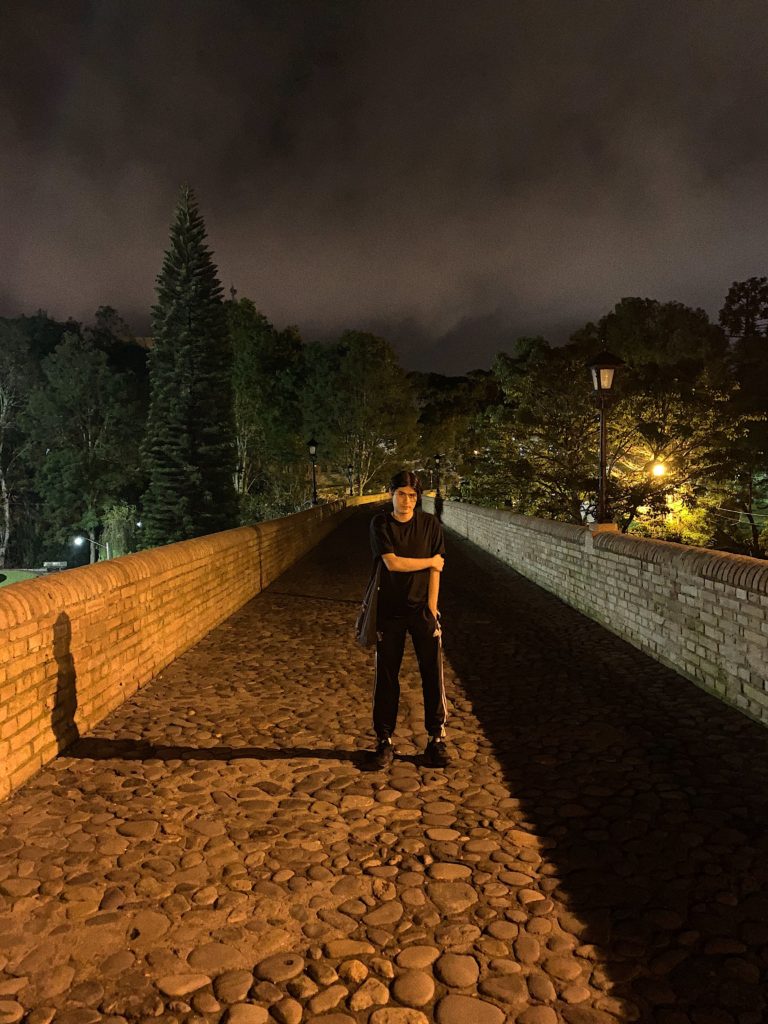Meet Medellín’s Verraco [@Verraco_], the Electronic producer building bridges between Latin American artists and the world
![Meet Medellín’s Verraco [@Verraco_], the Electronic producer building bridges between Latin American artists and the world](https://guap.co.uk/wp-content/uploads/2021/05/Verraco-1__by-©-Julian-Gallo-180x180.jpg)
Words by: Alejandra Cabrera
In the midst of the Andean mountains, Verraco and the Insurgentes are cooking up an Electronic music revolution.
Colombia has built a reputation as a country with one of the most exciting upcoming Electronic scenes. It’s in its second-largest city, Medellin, where much of the action is taking place. Among all the interesting proposals being offered in this city hidden in the Andean mountains, Verraco and his label Insurgentes stand out.
Drawing inspirations from the likes of Aphex Twin, Brian Eno and James Holden, Verraco longs to give his all in any genre he produces. “I don’t like to go halfway, for me in music there are no greys, there is only extremism,” he explains. “If I make an Ambient track, my motive is to have the listeners crying on the floor in the fetal position”.
Verraco answers my questions about growing up in Medellin cheerfully and with a lot of metaphors. He reminisces about a childhood in the city that has been put on the map for its ‘narcotraficante’ depiction, “sadly” in many Netflix shows. In a place where you are thrown into violence from a young age, it’s easy to let your mind wander to what’s happening outside of the mountainous and complicated city.
“I grew up with privileges in Medellin and I still had to be a witness to that violence and fear, that becomes a part of you” Verraco says. “In our label Insurgentes we try to fight all of that. We try to imagine other worlds beyond our mountains and we try to create a utopia as a way to light the way for others”.

Verraco feels that the complex sociopolitical aspects of Colombia fuel his passion for music making. Medellin makes it hard to be an artist, with a huge lack of governmental support and the few remaining clubs struggling to remain open. In his words, “we (artists) are the enemy of the government.” But this only makes him want to keep on conspiring against the odds and test his own limits.
He often quotes the poet Gonzalo Arango’s essay ‘Alone with you, Medellin’ to describe the relationship of love and hate that many of its citizens have with the city. A city that, despite having made them witness its violence, plays such a big role in their identities.
“Oh my dear Medellin, the city I love, in where I’ve suffered, in where I have died many times! My thinking became tragic between your high mountains, in the shadow of your parks, in your crazy longing for money. (…)
Arango, G. (1997). Alone with you, Medellìn.
I gave you love, but loving you almost destroyed me.”
Medellin was one of the biggest Reggaeton hotspots and Verraco grew up listening to it. “I would say my career in music started when I used to download Reggaeton and sell it in school,” he says laughing. “Reggaeton is in our blood. I grew up with it and my music has its imprint.”
The Electronic scene at the time in Colombia was exported mainly from Europe. There were some parties where you would hear Minimal Techno and then slowly famous Djs started making their way to Medellin, which opened up a new world for Verraco.
“I’m really passionate. When I have something I like, I work hard on it,” he says. “I downloaded Ableton and other mixing programs and I taught myself to put down in tracks what I wanted to express.”
After many years of learning, and moving to Barcelona for a year, Verraco put together his debut album Grial. “Grial comes from sensitivity, I don’t have any official training so it comes from my emotions and the manipulation of sounds,”.
“Musically, I come from a heritage more UK-based, but I also have Reggaeton and “perreo” in my veins and the Andes. My desire is to see how to mix all that and Grial is the representation of that collision.”
Speaking about his album with months of perspective, Verraco concludes that although being proud of it, he feels distant from that offering. He strived to carry on testing his limits and surprising himself with the results.
“I’m not interested in an outdated chauvinistic romantic message of saying ‘this is the time for Latin America’,” Verraco says. “What I want is to take down the barriers and build bridges between Latin American artists and the world.”

